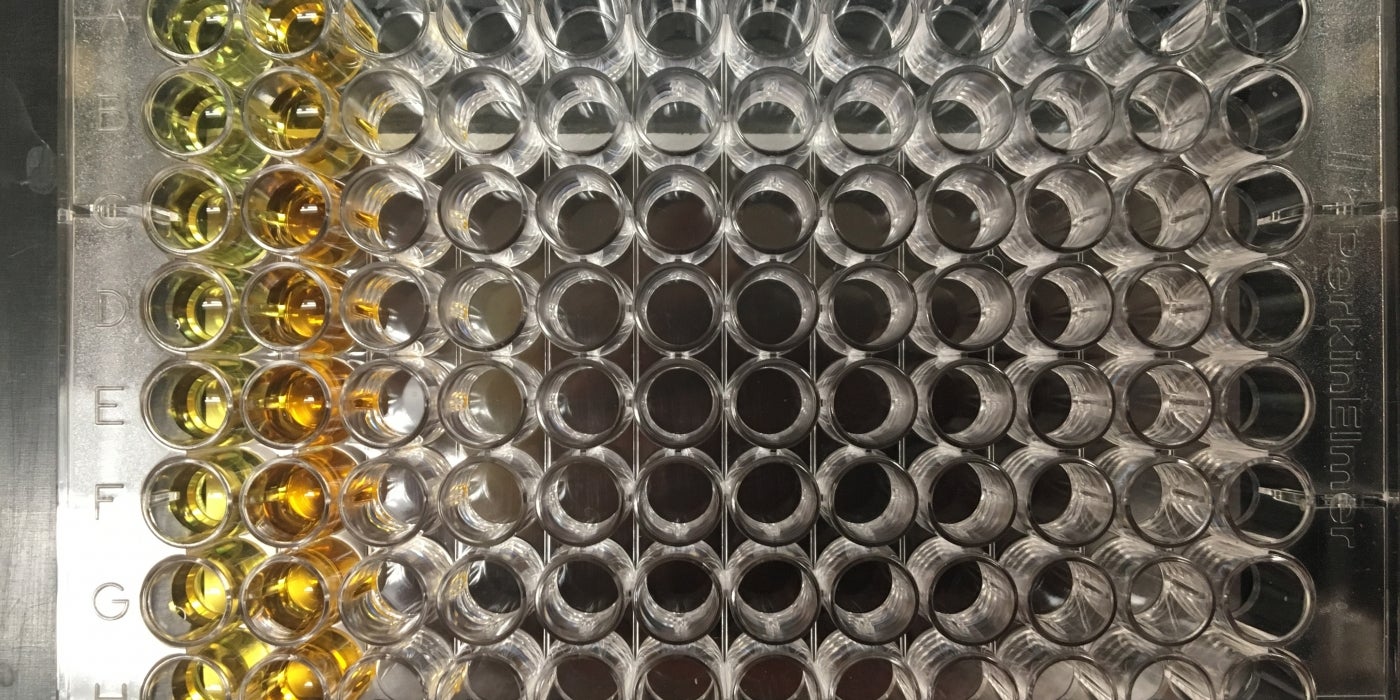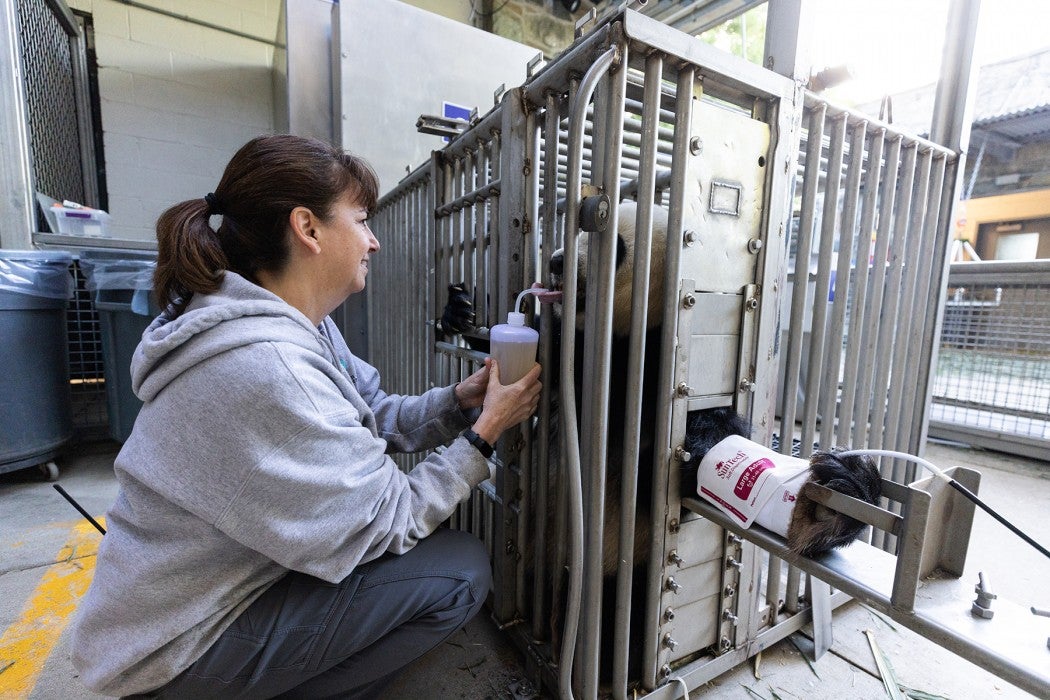#PandaStory: Parties and Pseudopregnancies

Just over a week ago, our female giant panda Mei Xiang reached a major milestone—she turned 25 years old July 22! To celebrate her birthday, our Department of Nutrition Science made a special panda-friendly fruitsicle cake just for Mei Xiang. The base consisted of frozen diluted apple juice, and it was decorated with mashed sweet potatoes, mashed carrots, apple slices and bamboo. While visitors sang “happy birthday” to Mei Xiang, she dug straight into the cake, biting into the “25” topper and picking off her favorite produce.
Another big milestone happened earlier this year. Those of you who have followed our #PandaStory updates know that Mei Xiang and her son, Xiao Qi Ji, shared a habitat for two-and-a-half years. In late February, Mei Xiang and Xiao Qi Ji’s behaviors indicated that he was ready to be independent from his mother. They have lived separately ever since.
Without a cub to care for or nurse, Mei Xiang went into estrus—the very short window when female giant pandas are able to conceive a cub—in spring. This is not unusual, as giant panda breeding season typically occurs between March and May. However, Mei Xiang is geriatric for her species and is considered post-reproductive. Following Xiao Qi Ji’s birth, our Chinese colleagues retired Mei Xiang from the breeding program, and we have not attempted either natural breeding or artificial insemination since 2020.
During this year’s breeding season, we observed changes in Mei Xiang’s behaviors, physiology and hormones. This indicated that, despite her advanced age, Mei Xiang experienced a full estrus this year!

A large component of our giant panda program is research. One way Zoo scientists study our pandas is by using non-invasive techniques, such as analyzing urine samples.
To monitor Mei Xiang’s hormones, we regularly collect samples of her urine and send them to the Zoo’s endocrinologists. They analyze the samples and look for changes in her estrogen and progesterone levels. When they see her estrogen levels rise, that means Mei Xiang is in estrus. After her estrogen levels peak, it indicates that she is ovulating. This year, they peaked April 22.
Months later, Mei Xiang is now experiencing a phenomenon called a pseudopregnancy. Even though she did not breed, she is going through the same hormonal and behavioral changes that she would if she were pregnant. Her levels of progesterone rise and fall just as they would during a real pregnancy.
Mei Xiang’s behaviors have changed, too. Over the last couple of weeks, she has chosen to stay in her air-conditioned indoor habitat and sleeps for longer periods. Because she spends more time sleeping, she eats less bamboo, produce and other foods. She also has a heightened sensitivity to noise, so we try to work as quietly as possible around her enclosure and den.

At the moment, she still voluntarily participates in husbandry and medical training sessions. As her pseudopregnancy progresses, though, she may choose to rest instead. In the coming weeks, we anticipate she will start nest-building, cradling objects and body-licking, as she has done in the past.
Eventually, Mei Xiang’s hormones and behaviors will return to normal. We are about four-to-eight weeks away from the end of her pseudopregnancy. For now, our team is continuing to keep Mei Xiang comfortable and provide her with the highest quality of care.
This story appears in the July 31 issue of the Giant Panda Bulletin. Read previous #PandaStory updates here. Want to see the pandas in person? Plan your visit! The Giant Panda Cam is generously sponsored by Boeing.
Related Species:


